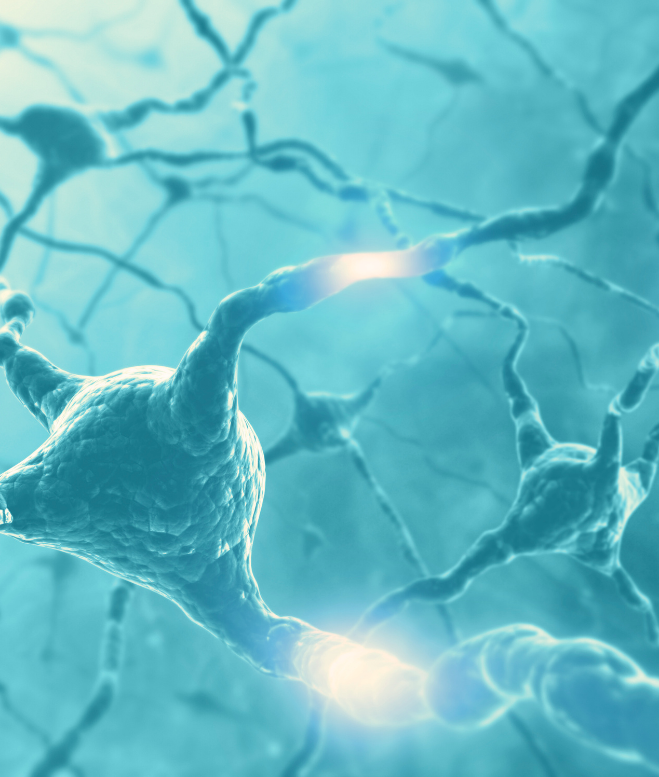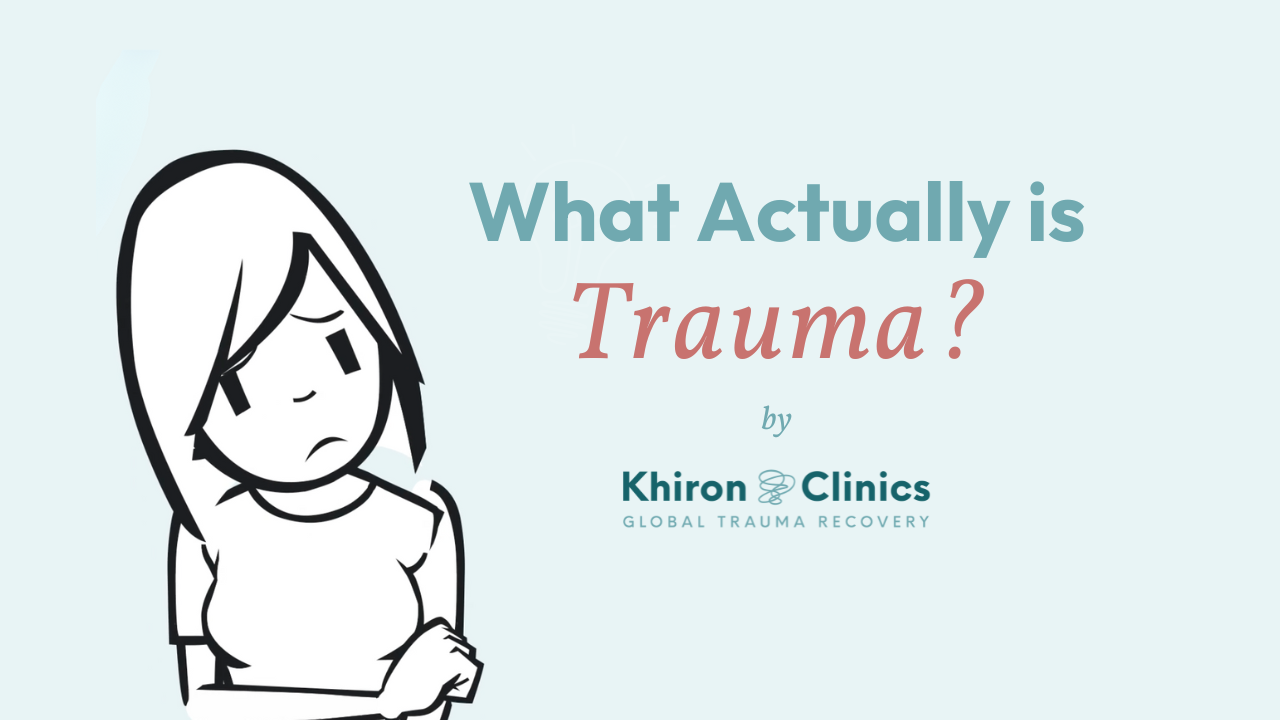What is Trauma - Types, Causes, Symptoms, and Recovery
Trauma can mean different things to different people. In everyday language, it is often linked to physical injury, but in mental health, psychological trauma refers to the lasting impact of overwhelming experiences on the mind, body, and behaviour. Unlike a physical wound, psychological trauma is often invisible, yet it can profoundly shape how a person feels, thinks, and relates to others.
With growing awareness of mental health worldwide, research shows that a significant number of people will experience trauma in their lifetime, whether from a single event, ongoing stress, or early adverse experiences. Recognising its signs and effects helps reduce stigma, normalise responses, and create pathways for recovery.
In this article, we will explore what trauma really is, the different types and causes, the symptoms it can create, and the approaches that support healing and long-term recovery.
What Actually Is Trauma?
Watch Our Short Video to Gain a Quick and Simple Understanding of What Trauma Is
Understanding trauma is crucial for recovery because it helps you see how psychological trauma impacts your mind, body, and behaviour. This knowledge normalises your responses, reducing self-blame and isolation by normalising your physical and emotional reactions. Learning about different types of trauma, from acute trauma to chronic trauma, can empower you to take control of your healing journey with informed decisions and effective coping strategies.
"Trauma is not only an event that took place in the past; it is also the imprint left by that experience on mind, brain, and body."
Dr Bessel Van Der Kolk
The Nature of Trauma
Trauma is often misunderstood. While commonly thought of as a distressing event or experience, this perspective is overly simplistic. Popular culture frequently portrays trauma through dramatic events, like soldiers experiencing ‘shell shock.’ However, trauma is not merely an event; it is the body’s response to a single event or multiple experiences.
Trauma may also come from ongoing trauma, such as childhood neglect, sexual violence, or intimate partner violence. Over time, these traumatic experiences can overwhelm the nervous system. Survivors often notice long-lasting emotional responses and even persistent physical symptoms that affect daily life.

“Trauma is perhaps the most avoided, ignored, belittled, denied, misunderstood, and untreated cause of human suffering.”
Dr Peter Levine

“Trauma is not what happens to you, but what happens inside you as a result of what happens to you.”
Gabor Maté
A Deeper Understanding
What is trauma? Trauma stems from the body’s unconscious reactions, which means one may not even remember the traumatic event. As Dr. Gabor Maté wisely states, “Trauma is not what happens to you, but what happens inside you as a result of what happens to you.” It represents a disconnection from oneself and the present due to overwhelming stress or perceived threats.
In some cases, adverse childhood experiences such as physical abuse or childhood neglect may lead to developmental trauma disorder, where children later develop symptoms similar to acute stress disorder or post-traumatic stress disorder (PTSD). Recognising this perspective shift is crucial for effective treatment and cultivating self-compassion in recovery
The Invisible Wounds
Unlike visible physical trauma or serious injury, the psychological scars of emotional trauma remain unseen. These psychological symptoms may include emotional numbing, severe anxiety, and other post-traumatic symptoms, all of which affect overall mental health and daily functioning.
Dr. Bessel van der Kolk, a respected trauma researcher, emphasises that our bodies can keep reliving traumatic events even after they have ended, leading to chronic mental and physical health issues and symptoms.

“Traumatized people chronically feel unsafe inside their bodies: The past is alive in the form of gnawing interior discomfort.”
Dr Bessel Van Der Kolk
Types of Trauma
Acute trauma – single distressing event.
Chronic trauma – repeated/prolonged experiences (e.g. abuse, domestic violence).
Complex trauma – multiple traumas, often interpersonal.
Secondary trauma – also known as vicarious trauma, this happens from witnessing others’ suffering (e.g. healthcare workers).
Symptoms of Trauma
Trauma affects individuals in diverse ways, and its symptoms can manifest across emotional, psychological, and physical domains. Recognising trauma symptoms is an important step toward seeking support and recovery.
Emotional and Psychological Symptoms
Trauma often disrupts emotional regulation, leading to feelings and behaviours that may feel overwhelming or confusing. Common emotional and psychological symptoms include:
- Persistent anxiety or fear
- Irritability, anger, or mood swings
- Emotional numbness or detachment from others
- Difficulty trusting people or forming close relationships
- Intrusive thoughts or flashbacks of the traumatic event
- Nightmares or disturbed sleep
- Feelings of guilt, shame, or self-blame
- In children, these symptoms may appear as clinginess, aggression, frequent tantrums, or difficulty focusing.
Physical Symptoms
Trauma can leave a lasting imprint on the body. Common physical manifestations include:
- Chronic pain or tension, often in the neck, shoulders, or back
- Headaches or migraines
- Gastrointestinal issues, such as irritable bowel syndrome (IBS)
- Fatigue or low energy
- Heart palpitations or rapid heartbeat
- Changes in appetite or sleep patterns
- These symptoms occur because trauma affects the nervous system, keeping the body in a heightened state of alert even long after the event has passed.
Post-Traumatic Stress Disorder (PTSD)
When trauma symptoms persist and significantly impact daily functioning, they may develop into PTSD. Key signs include:
- Re-experiencing the traumatic event through flashbacks or nightmares
- Avoidance of places, people, or situations that trigger feelings associated with the trauma
- Hyperarousal, including exaggerated startle response, irritability, or difficulty concentrating
- Emotional numbing and detachment from loved ones
- Persistent negative beliefs about oneself, others, or the world
Causes of Trauma
Trauma can arise from various experiences, whether a single event or prolonged exposure to stress.
These experiences may include:
- Physical, emotional, or sexual abuse
- Neglect
- Domestic violence
- Assault
- Witnessing violence
- Death of a loved one
- Relationship breakdowns
- Severe illness or injury
- Loss of employment
- Bullying
- Natural disasters
- Accidents
- Combat trauma
- Kidnapping or hostage situations
- Refugee experiences
- Terrorism
How Trauma is Experienced and Stored
When we encounter an imminent threat or stress, our bodies prepare for fighting or fleeing. A surge of hormones is released, causing temporary physiological changes—pupils dilate, blood flow is directed to major muscle groups and heart rate increases. Adrenaline and energy surge through our system, so we can respond quickly and powerfully.
However, in some situations, we can neither fight, nor flee, and instead we freeze.
Any situation where we feel stuck or trapped can trigger this frozen reaction. This can range from being physically unable to leave, such as in cases of child neglect, sexual abuse, or certain forms of violence, to more nuanced feelings of confinement, like workplace bullying or emotional abuse. For survivors of such experiences, we must address these unfinished reactions at a later stage in order to heal.


How Trauma Gets 'Stuck'
When we cannot fight or flee, our bodies freeze. The energy generated for action becomes ‘frozen’ in the body. With the threat response remaining ‘unfinished’, stress energy becomes trapped in our nervous system.
This can lead to symptoms such as hypervigilance, flashbacks, and emotional numbness. This trapped energy can result in various ailments, from chronic fatigue syndrome (ME/CFS) to irritable bowel syndrome (IBS), or manifest as physical tension and pain.
For instance, someone who experienced an assault may develop chronic pain in areas like the neck or back, even after physical injuries have healed. This pain is often a manifestation of the body’s unprocessed defensive responses.
Understanding the Nervous System
The human nervous system is central to understanding trauma. It consists of the central nervous system (brain and spinal cord) and the peripheral nervous system, which includes the autonomic nervous system (ANS).
The ANS has two branches: the sympathetic system (responsible for the fight-or-flight response) and the parasympathetic system (promoting rest and digestion).
When a person experiences trauma, the sympathetic system may become chronically overactive, keeping the body in a heightened state of alert. In some cases, if the threat feels inescapable or overwhelming, the nervous system may shift into a shutdown state, which is a parasympathetic-dominant response.
Shutdown is not just “resting” — it is the body’s survival response to extreme stress, where energy is conserved and basic functions slow down. This can feel like:
Emotional numbness or detachment
Low energy or chronic fatigue
Feeling “frozen” or unable to act
Dissociation or feeling disconnected from the body or surroundings

For many trauma survivors, this shutdown state is the nervous system’s way of protecting itself when fight or flight is not possible. Understanding this response helps explain why trauma can lead to both hyperarousal (anxious, reactive states) and hypoarousal (shutdown, withdrawal) and why therapeutic approaches focus on helping the nervous system re-regulate safely.
Impact of Unresolved Trauma on Daily Life
Examples of the impact include:
- Frequent conflicts in relationships due to a heightened sense of self-protection.
- Development of unhealthy attachment styles.
- Emotional instability and mood swings.
- Avoidance of triggering situations, limiting social and professional participation.
- Difficulty concentrating and memory issues.
- Chronic physical ailments like headaches and digestive problems.
- Persistent feelings of guilt, shame, and worthlessness.
- Heightened startle response and hypervigilance.
- Disrupted sleep patterns.
Recovery and Healing from Trauma
- Self-care strategies: grounding, mindfulness, journaling, safe routines.
- Professional therapy: trauma-focused CBT, eye movement desensitization and reprocessing (EMDR), somatic experiencing, internal family systems (IFS), trauma counselling.
- Community support: peer groups, support networks, safe relationships.
- Lifestyle approaches: exercise, healthy sleep, nutrition.
Treating Trauma at Khiron Clinics
At Khiron Clinics, we focus on treating the root causes of mental and physical health issues rather than just the symptoms. We address various mental health conditions and trauma-related difficulties such as post-traumatic stress disorder, secondary traumatic stress, complex trauma, anxiety disorders, and depression. Our approach emphasises safety and empowerment, utilising a combination of top-down and bottom-up methods that address the physical aspects of trauma before delving into cognitive or emotional issues.
Healing with Mind-Body Approaches
Our unique treatment programmes are delivered by clinicians who are informed, trained and supervised by some of the world’s top trauma experts, including Dr Bessel Van Der Kolk, Dr Janina Fisher, Dr Stephen Porges, Deb Dana, Dr Dick Schwartz, Licia Sky and Linda Thai.
We offer trauma therapy that directly work with the nervous system to heal the underlying causes of mental and physical health issues, providing a path to lasting recovery.
Understanding trauma as a complex, multifaceted response rather than just an event allows for more effective treatment and greater compassion for oneself and others. At Khiron Clinics, we are dedicated to helping individuals make sense of their experiences and find a path to healing.
Expand Life Skills
Increase Safety in Relationships
Express Unprocessed Emotions
Identify & Manage Triggers
Develop Resources
Understand Science of Trauma
Frequently Asked Questions
Trauma refers to the psychological and physical responses to a distressing or potentially traumatic event. It can include acute trauma (a single event) or chronic trauma (ongoing or repeated exposure, such as abuse or intimate partner violence). Trauma impacts mental health, emotional responses, and physical health, leaving lasting imprints on the mind and body.
Trauma can take several forms:
Acute trauma: Single distressing event.
Chronic trauma: Ongoing or repeated exposure to traumatic stress.
Complex trauma: Multiple traumatic events, often interpersonal.
Secondary trauma / vicarious trauma: Emotional responses from witnessing others’ trauma.
Childhood trauma / developmental trauma: Adverse childhood experiences, neglect, or abuse that affect psychological development.
Recovery involves trauma-informed approaches and professional support:
Trauma therapy, such as cognitive processing therapy, EMDR, somatic experiencing, or exposure therapy
Support from mental health professionals and trauma-informed clinicians
Self-care strategies for physical and emotional reactions, including grounding, mindfulness, journaling, and safe routines
Community and peer support networks
You may have trauma if past experiences continue to affect your daily life, relationships, or mental health. Symptoms can include emotional numbness, anxiety, post-traumatic symptoms, flashbacks, or physical symptoms such as chronic pain. A mental health professional can assess trauma exposure and guide recovery.
Trauma can contribute to poor mental health and mental disorders, including PTSD, posttraumatic stress disorder, anxiety disorders, depression, or borderline personality disorder. Trauma responses may also manifest as emotional trauma, developmental trauma, or ongoing traumatic stress.
Traumatic events include incidents that overwhelm an individual’s ability to cope. Examples:
Physical trauma, sexual violence, sexual assault, or sexual abuse
Intimate partner violence or domestic abuse
Childhood neglect or adverse childhood experiences
Natural disasters, serious injury, or accidents
Witnessing violence or experiencing prolonged exposure to stressful events
Yes. Post-traumatic stress disorder (PTSD) or post-traumatic symptoms can develop after experiencing acute trauma, chronic trauma, complex trauma, or other traumatic experiences. Symptoms may include intrusive traumatic memories, emotional numbing, hypervigilance, or severe anxiety.
Yes. Trauma often produces physical symptoms, such as chronic pain, tension, headaches, digestive issues, fatigue, and disrupted sleep. These physical responses result from the nervous system holding unprocessed stress from traumatic experiences.
Secondary trauma, or vicarious trauma, occurs when individuals experience emotional and psychological reactions from witnessing or supporting trauma survivors. Healthcare workers, mental health professionals, and caregivers may experience secondary traumatic stress.
Effective treatment for trauma includes trauma-informed therapy, trauma therapy modalities such as somatic experiencing, EMDR, exposure therapy, cognitive processing therapy, and supportive mental health care. Recovery addresses both psychological trauma and physical and emotional reactions to promote lasting healing.

Download the Brochure
Discover Our Innovative Trauma Recovery Pathway
Next Steps
We Are Here to Help You Find the Path to Effective, Long Lasting Recovery.

Talk to Us
Get in touch with us and share your story if you feel comfortable with someone who will listen. Our team are always here to help.

Book an Initial Consultation
Meet with a senior member of our clinical team and get insights into the root causes of your issues, plus a written summary and treatment recommendation.

Download Our Brochure
Discover our innovative trauma recovery pathway. Find out more about how we treat, what we treat, our clinics, pricing and more.

